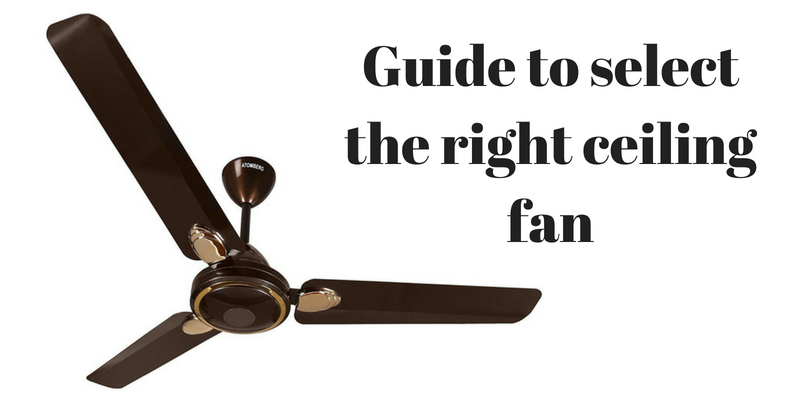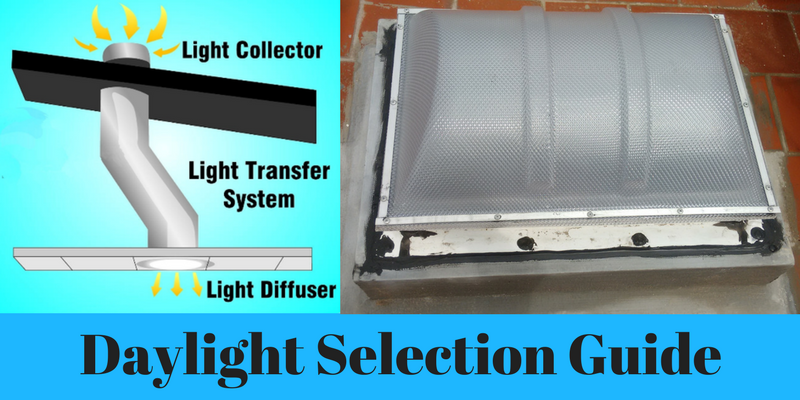How to choose the right ceiling fan for your workplace
Ceiling fans are widely used in workplaces. Even though many work places have centralized or other type of air conditioners, ceiling fans are still used for ventilation purposes. The selection of the ceiling fans is fundamentally based on the following factors
- Room size
- Energy consumption.
- Payback Period
Room Size
Based on the room size, the fans can be selected by the blade span. Blade span is calculated by multiplying the length from the center of the fan to blade by two.
Blade Span = Distance from the center of the fan to the blade x 2
Typically blade span ranges from 900mm to 1400mm
The following table gives an overview of fan selection with respect to the room size.
Ceiling Fan Selection by Room Size
| Room Size (Sq. ft | Blade Span of the fan (mm / inch) |
|---|---|
| up to 140 | 1050/42 |
| 140 - 220 | 1200/48 |
| 220 - 400 | 1400/56 |
From the table it can be inferred, that for a room size up to 140 Sq. ft., a fan with 42″ blade span would be suitable and for a room of around 400 Sq. ft, a fan with a 56″ blade span can be selected. For rooms with larger areas, multiple fans with suitable blade span can be used. For instance, a 1,000 sq. ft. room can have five numbers of fans with 48″ blade span each or three numbers of fans with 56″ bade span each.
Energy consumption
Conventional ceiling fans consume anywhere between 75 – 80 watt. The traditional energy-saving fans that are available consume anywhere between 45 – 50 watt. The BLDC fans that are the most energy-efficient consume anywhere between 24 – 38 watt.
Ceiling Fan Selection by Energy Consumption
| Power Consumption | Ceiling Fan Type | Payback period* |
|---|---|---|
| 60 - 80W | Conventional Fans | NA |
| 40 - 50W | Traditional energy-saving fans | 13 - 18 months |
| 24 - 35W | BLDC Fans | 9 - 12 months |
| *Calculated considering 8 hours usage per day for 365 days at an unit electricity rate of Rs. 8 with an additional investment of Rs. 1,300 for BLDC fans and Rs. 1,000 for traditional energy-saving fans over conventional Fans | ||
Payback period
Payback period or return on investment is usually considered while purchasing items that are priced higher when compared to traditionally available items. The payback period in using BLDC fans is up to 12 months and up to 18 months while using traditional energy-saving fans
Payback Calculation for Energy Saving Ceiling Fans
| Particulars | BLDC fans | Traditional energy-saving fans | Conventional Fans |
|---|---|---|---|
| Watt | 24 | 50 | 80 |
| Daily Usage Hours/Day | 8 | 8 | 8 |
| Electricity Rate/ Unit | Rs. 10 | Rs. 10 | Rs. 10 |
| No of days used /Year | 365 | 365 | 365 |
| Number of Hours run for consuming 1 Unit of Power | 42 | 20 | 13 |
| Unit of Power consumed by a fan for running 8 hours a day | 0.192 | 0.4 | 0.64 |
| Unit of electricity for a fan /year | 70.08 | 146 | 233.6 |
| Amount spent per fan /year | Rs. 700.8 | Rs. 1,460 | Rs. 2,336 |
| Total Cost Saving in 1 Year/ per fan (in comparison with conventional fans) | Rs. 1,635.2 | Rs. 876 | NA |
| Difference in Investment, when compared to conventional fans | Rs. 1,300 | Rs. 1,000 | NA |
| Payback period | 9.6 months | 13.7 months | NA |
BLDC fans consume the least power and gives a quicker return on investment. Moreover, BLDC fans can last for as long as 18 years with good efficiency making them the most economical ceiling fans now available.




